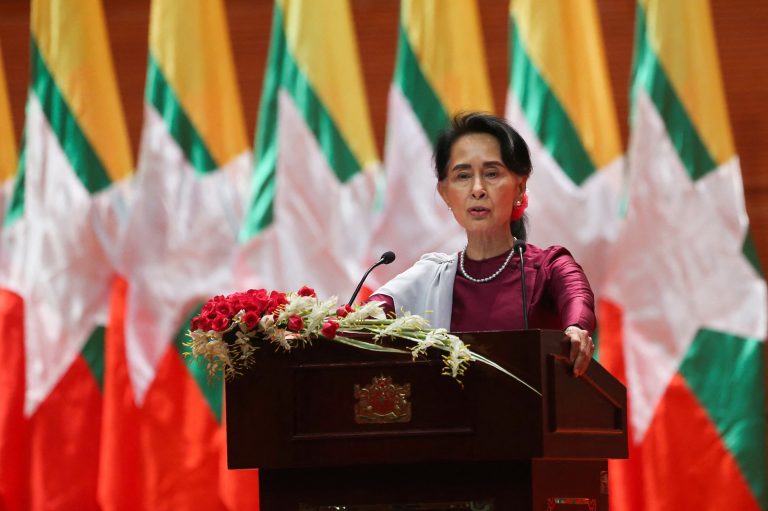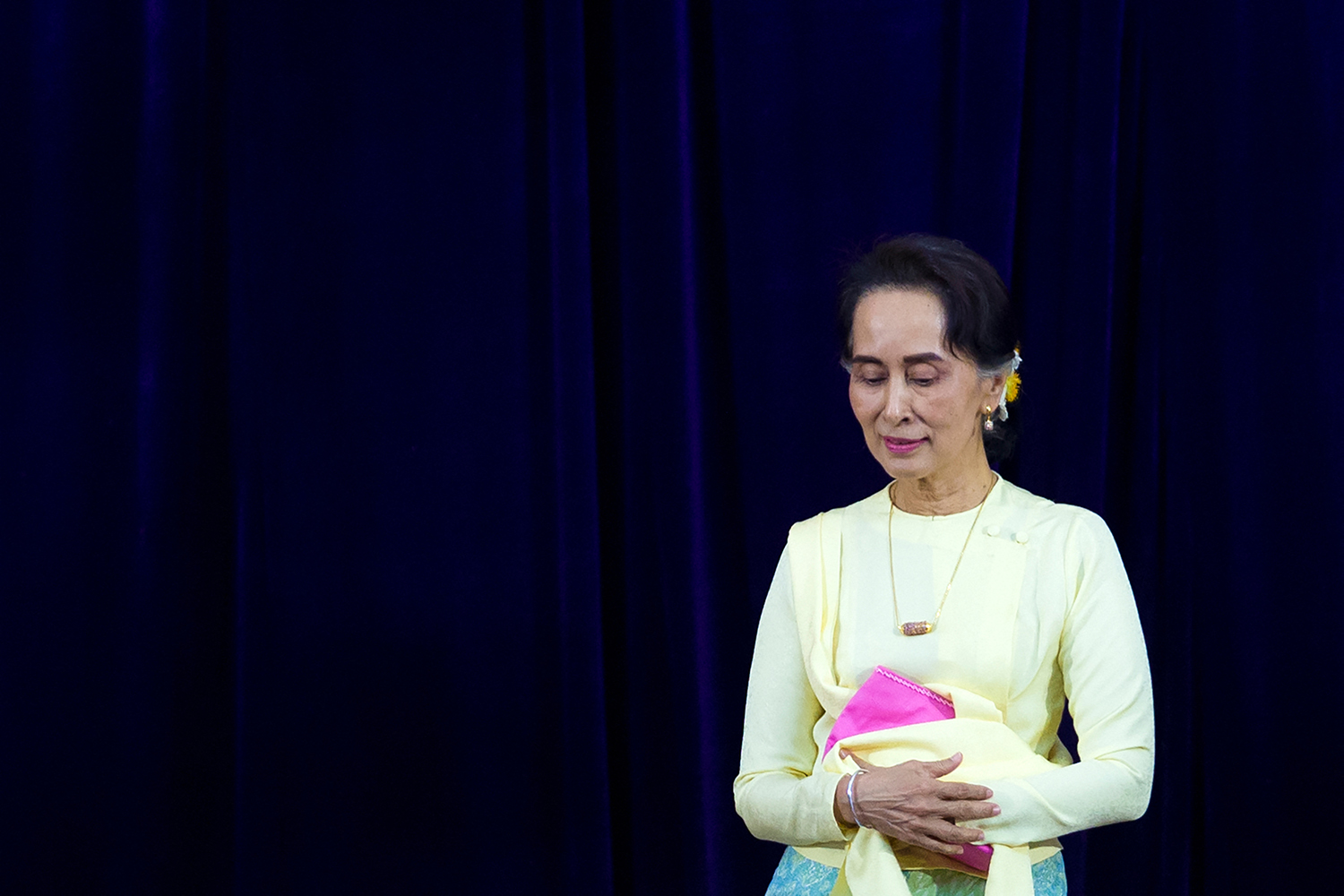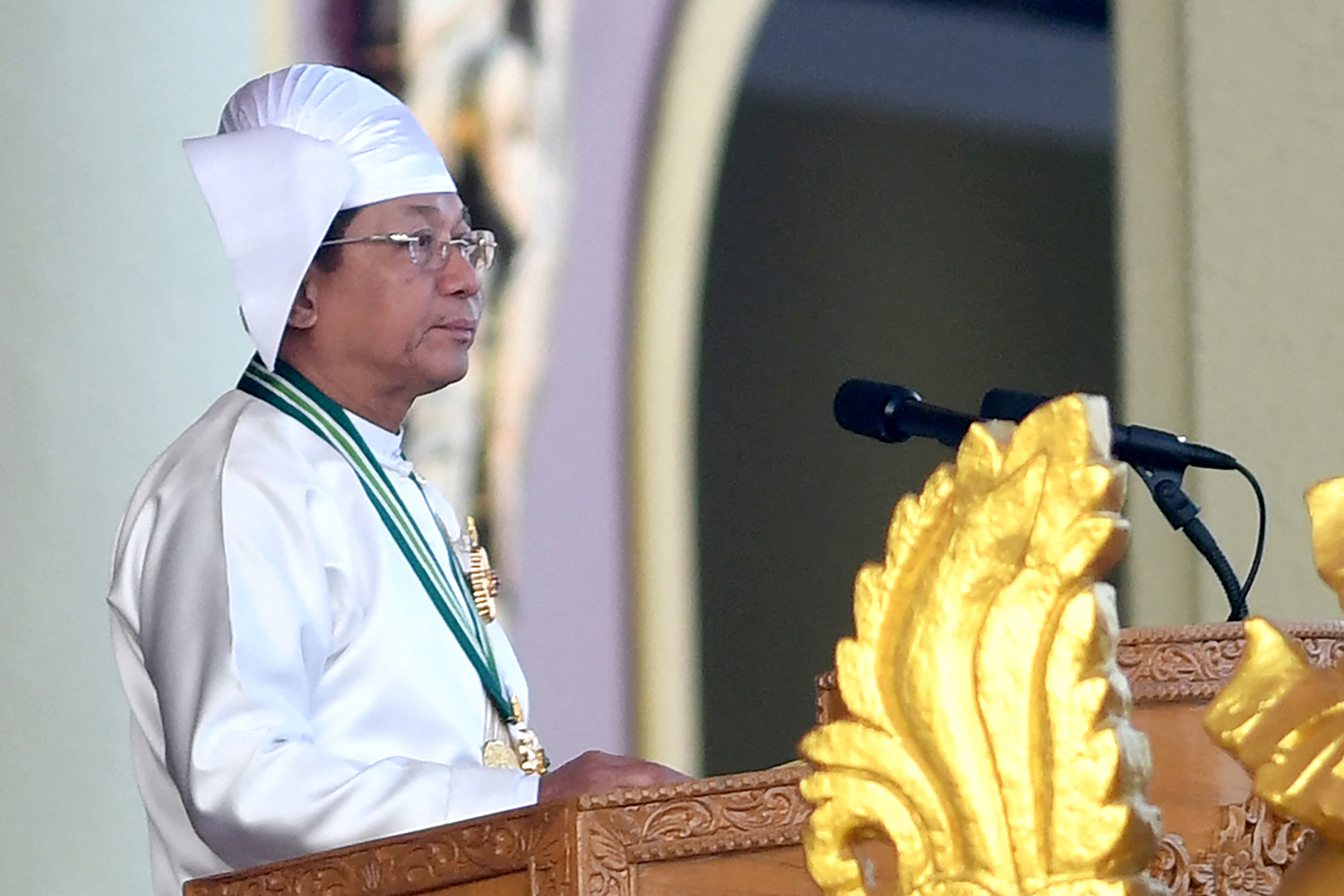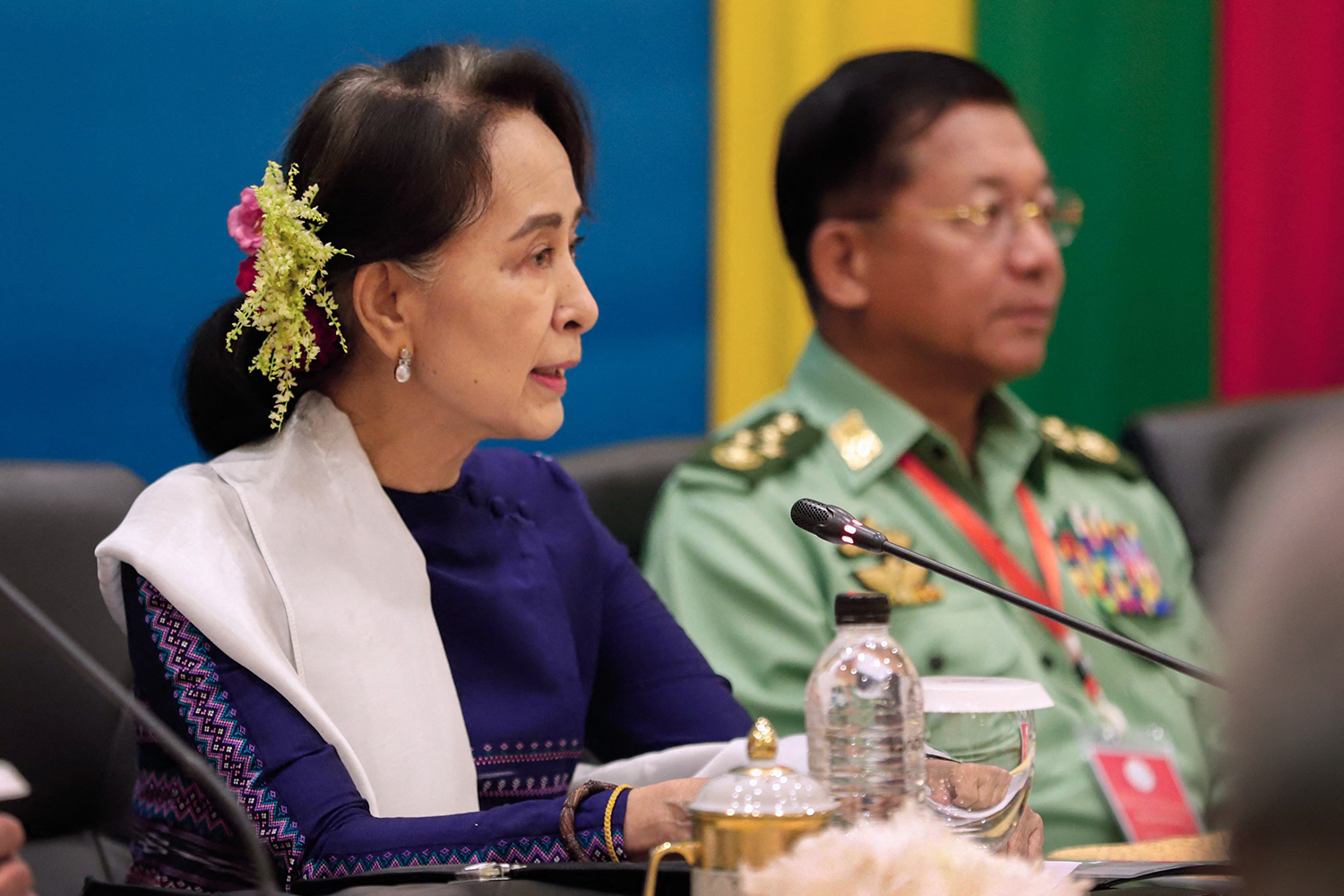TOKYO — Japanese Prime Minister Shinzo Abe on Wednesday announced nearly $8 billion in aid, loans and investment to promote development and reconciliation in Myanmar after talks with State Counsellor Aung San Suu Kyi.
The 800 billion yen ($7.7 billion) package from both the public and private sectors is to be spread over five years, Abe said.
“This is designed to help Myanmar’s nation-building through its balanced development,” Abe told reporters in a joint appearance with Suu Kyi after their talks.
A total of 40 billion yen is earmarked to promote amity in areas inhabited by ethnic minorities in Myanmar, which has been emerging from years of military dictatorship and ethnic conflict.
“With this aid, it is our hope that the fruits of reconciliation will be spread across Myanmar and be further promoted,” Abe said.
Support more independent journalism like this. Sign up to be a Frontier member.
Aung San Suu Kyi repeatedly thanked Japan for helping her country.
“Such assistance will help Myanmar build peace and develop itself,” said Suu Kyi, who arrived in Tokyo on Tuesday for a five-day visit.
The former political prisoner and Nobel peace laureate has pursued whirlwind diplomacy since her party took power six months ago, including visits to Southeast Asian neighbours as well as key allies China, the United States and India.
Her travels are aimed at attracting economic development and infrastructure aid to rebuild the resource-rich country after decades of military rule, economic isolation and civil conflict.
During her visit to Washington last month US President Barack Obama announced he would lift decades-old economic sanctions imposed on Myanmar’s former military rulers.
At home, however, Suu Kyi has faced criticism for pressing ahead with her trips while a crisis unfolds in the north of Rakhine State, where activists have accused the military of raping and killing civilians from the Rohingya minority.
Since coming to power this year, Aung San Suu Kyi has said she would try to ease longstanding tensions among ethnic and religious groups.
But her cautiousness has disappointed some of her most ardent Western supporters, particularly a refusal to speak out about the plight of the Rohingya — a persecuted Muslim minority in the overwhelmingly Buddhist nation.
Aung San Suu Kyi did not touch on the Rohingya during the press conference, but a Japanese official briefing reporters on her talks with Abe paraphrased her as saying Myanmar would deal with the problem under the law.
The two leaders did not have detailed discussions on the issue, the official said.







